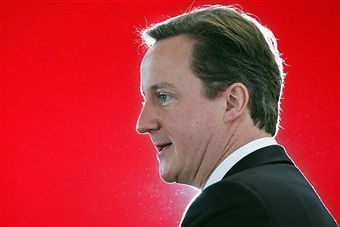 The deficit is in the Tories’ crosshairs this morning. George Osborne pens an article in the Times, castigating Brown’s obsession with continuity:
The deficit is in the Tories’ crosshairs this morning. George Osborne pens an article in the Times, castigating Brown’s obsession with continuity:
‘We need a new British economic model that learns from the mistakes of the past. First, that new economic model requires government to live within its means. We entered the recession, after years of growth, with one of the highest deficits in the developed world and we leave the recession with our credit rating under threat. That will have potentially disastrous consequences for international confidence. If Britain starts to pay the sort of risk premiums that Greece is paying, the interest bill on a £150,000 mortgage would go up by more than £200 a month.
The overriding objective of fiscal policy must be to provide the credible deficit reduction plan that allows the Bank of England to keep mortgage rates as low as possible for as long as possible. That will do more to sustain a recovery than anything else. That credible plan must eliminate a large part of the structural deficit over the next Parliament, starting in the coming financial year. The end of the recession removes the last excuse Gordon Brown has for sticking with next year’s reckless spending plans. The only reason now why the difficult decisions are being delayed until 2011 is that there is a general election in 2010.’
David Cameron’s press conference was dominated by the same issue. The Tories are at their most coherent when outlining cuts and deficit reduction, certainly compared to the government’s very obvious divisions, and strategically Cameron and Osborne are winning this crucial debate. Inflation and mortgage rates are the latest challenges to recovery; Labour ignores these issues. Months after its genus, the public is uninterested in Brown’s visions of the green-shoots of recovery; they want debt reduction ad nauseam. The Tories should peddle that opiate as often as possible.






Comments